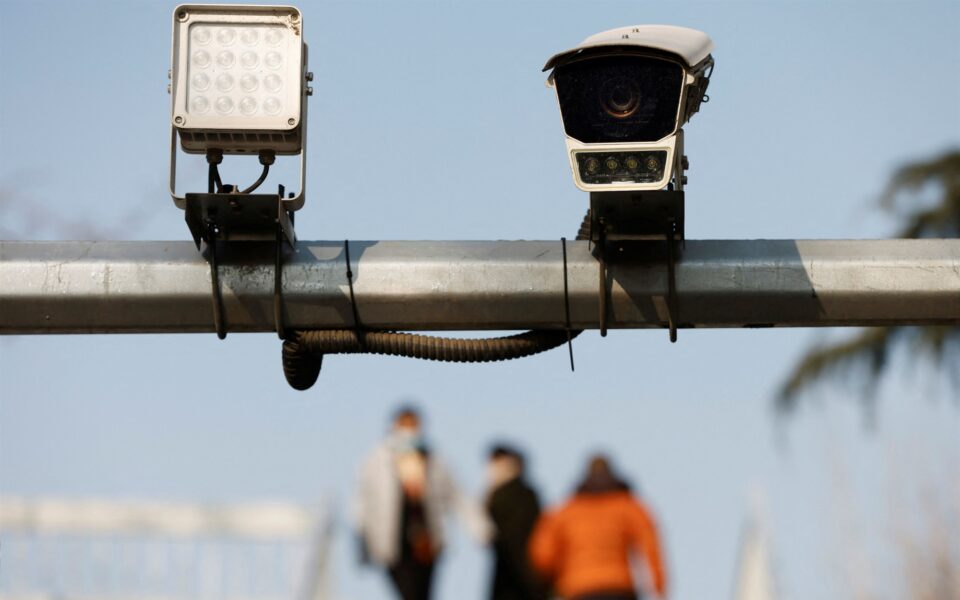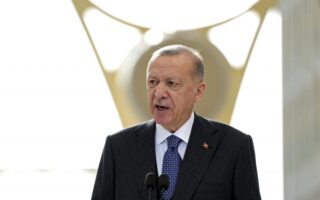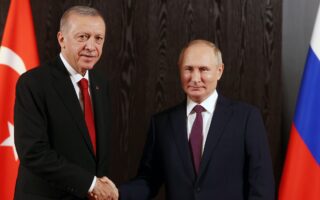Surveillance and reforms: The case of Greece

The recent case of the wiretapping of MEP and PASOK President Nikos Androulakis’ phone has led to strong criticism against the government about a “surveillance system,” the “Greek Watergate” etc. Of course surveillance operations and the role of intelligence services is a very sensitive issue. We should not forget that we are living in a period of great debate between security and liberty. But we should try to discuss this issue without falling into polarization and populism.
Intelligence or secret services are an essential part of every national security system and a state where citizens’ protection plays a primary role needs effective and transparent intelligence services. We live in an era of smart technology and smart and fast information. Let’s think about how a piece of intelligence can prevent a terrorist attack or invasion. However, intelligence is not only related to the immediate response, but also to strategic planning – i.e. it affects decision making. It is no coincidence that this is an important sector of the national security system. In the age of daily risk in which we live, intelligence can and must work to protect the state, infrastructure and citizens. This is why trust, closely linked to transparency and accountability, is critical. Secrecy in the operation of intelligence services does not mean a gray area – i.e. conditions beyond legality and democracy. We must see the crisis as an opportunity and move to a modern intelligence culture and community, an integral part of a national security strategy, to strengthen the transparency, accountability and extroversion of intelligence services. Within this framework there should be no rights violation windows open.
First of all we should clarify the lines and the different roles of a government and an intelligence service. Governments, in different forms (i.e. a minister, the Office of the Prime Minister, a secretary general, the cabinet etc), are responsible for the executive oversight of an intelligence agency. In modern European democracies, as Greece, governments do not and should not interfere in the operational work of an intelligence service. Of course, as the executive oversight authority, the government is responsible for monitoring and assessing that the intelligence service is following the legal, institutional and political provisions of its role. Apart from the legal framework and the filters for the protection of communications privacy and other provisions and restrictions regarding the role and the work of intelligence services, the decision to put someone under surveillance is based on operational criteria and procedures. In the case of Greece and its National Intelligence Service (EYP), before the final approval of the special prosecutor, there is an operational procedure based on the assessments of different personnel concerning the need for a surveillance operation. The logic and the arguments of this operational procedure comprise the basis upon which the prosecutor decides. Of course there is always the possibility of wrong estimations, decisions and misconduct, and we have examples from different countries about relevant cases. For example, the prime minister of Greece admitted that putting Androulakis under surveillance following the legal procedure was wrong and proves the lack of some necessary filters to assess cases of politicians. That’s why it’s very important to safeguard the procedure and the rationale for a surveillance operation, including all the necessary filters and checks and balances, as well as the enhanced role of independent authorities.
Due to cultural and political reasons, security is treated mainly through ideological angles, which does not leave any space for fruitful dialogue and cooperation
Another important dimension within this discussion is the concept of national interest. The national interest in cases of surveillance operations is linked to the concept of national security. For quite some years now, and especially after the 9/11 attacks, the lines between internal and external security (the two core pillars of national security) have been blurred, due to overlapping areas of responsibility. In this framework, the concept of national security, in a multi-crisis period, is very broad. Some decades ago, national security was only linked to possible aggressive attacks from another state. In the post-Cold War period the security environment has changed dramatically. Today, a country’s national security strategy has to consider new and asymmetrical threats, such as international terrorism, hybrid threats, cyberattacks etc and the role of intelligence agencies is partly to protect against these threats. Russia’s brutal invasion of Ukraine reminds us that inter-state wars are still here. Some countries, including Greece, are facing a very complex mixture of threats. From the aggressive behavior of Turkey to international terrorism, hybrid threats, cross-border organized crime and massive irregular migrant movements with the involvement of many criminal networks. Furthermore, Greece is a country with a number of extremist anarchist, far-left and far-right organizations. We should also add the risk of malign external influences, especially since the start of the war in Ukraine, which could affect many sectors of public life. To this end, surveillance operations don’t just cover terrorists but also cases that could emerge from this complex portrait of possible threats. Needless to say that national security issues should not be misused in order to target people and every request for surveillance should be examined and explained in detail.
In Greece we are watching a very fragmented and polarized debate about security in general and intelligence services in particular. Due to cultural and political reasons, security is treated mainly through ideological angles, which does not leave any space for fruitful dialogue and cooperation. I would like to add to this the longstanding culture of different governments keeping the intelligence service behind closed doors. In contrast, in other countries, such as the United Kingdom, the intelligence services are more open, the public has a better understanding of what they do, and their role is part of normal daily life. Furthermore, Greece lacks a culture of common understanding and cooperation between the public and the special parliamentary committees investigating scandals. Within this framework is not unusual that the political parties mainly resort to bickering, and it is parallel monologues that emerge rather than a proper conclusive report as an outcome of the committee. We should keep that in mind when studying the situation with the committee concerning surveillance cases. Apart from this, it is time to include openness and transparency as part of the reform of the intelligence services. But at the moment there are legal provisions regarding confidentiality, although there is a very big debate between scholars over this. To this end it is very difficult to avoid distrust between the government and the opposition parties and polarization of political life. But we should try to avoid possible distrust of the intelligence service as the outcome of this polarized situation.
Triantafyllos Karatrantos holds a PhD in European security and asymmetric threats and is a research fellow at the Hellenic Foundation for European & Foreign Policy (ELIAMEP).





